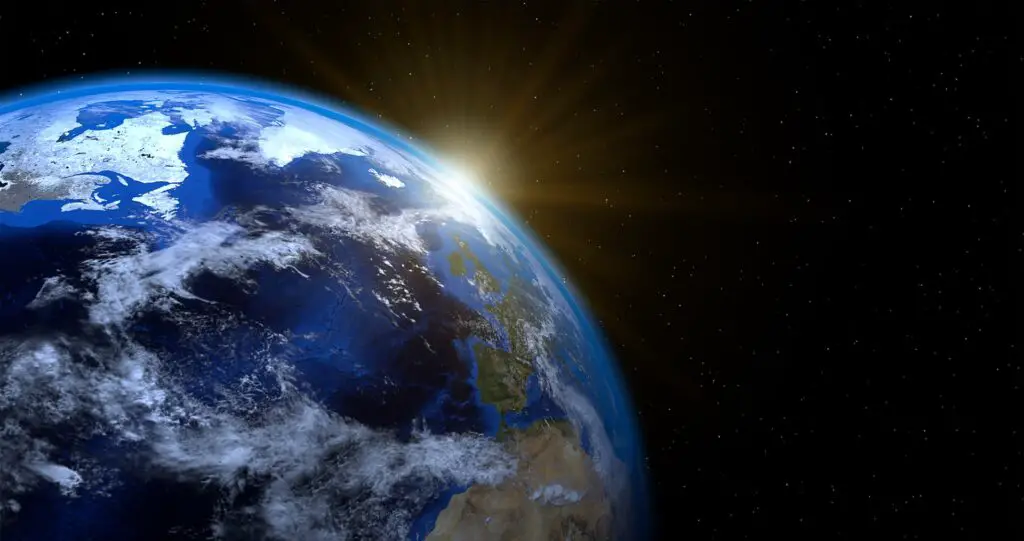Between June and July 2022, Earth experienced two shortest days as scientists marveled at these significant changes. For years, scientists have used highly sophisticated atomic clocks to measure the earth’s rotational period. On June 29th, 2022, these atomic clocks clearly specified that the Earth completed its rotation in about 1.59 milliseconds under 24 hours-time cycles, recording the Earth’s shortest day since these atomic clocks began to function.
Scientists marveled about this discovery as Earth usually completes its full spin on average of nearly 8,640,000 milliseconds. In most cases, the speed of the earth’s rotation can fluctuate from time to time. But its fluctuation never has 1.59 milliseconds before.
Since Earth’s full rotation can vary, the day’s duration can vary in small, unnoticeable factors. Scientists learned from this discovery that the Earth is currently spinning faster than before, causing our planet to undergo long-term changes.
When Did Scientists begin to use atomic clocks to measure the earth’s rotation?
The Earth has spun at a much slower speed in the past centuries. However, over the past few years, the planet began to spin faster than usual. The time required for the earth to complete one rotation around its axis is about 23 hours, 56 minutes, and 4.091 seconds with respect to other distanced stars.
However, it takes the earth about 24 hours to complete one spin with respect to our Sun. Hence, scientists refer to our 24 hours time frame as a solar day. For centuries, the time taken by Earth to complete one spin around its axis has continued to change from time to time.
Scientists noticed these changes and invented the atomic clock in 1948. After a series of testing, scientists realized that the atomic clocks have the potential to give the most detailed and precise measurement of Earth’s rotation. The atomic clocks were explicitly designed to determine the length of a second. After getting satisfactory test results, scientists have been using atomic clocks to measure the earth’s rotation speed since the 1960s.
Time and Date reported that the Earth experienced 28 shortest days in 2020 alone. The report was made in December 2020, and scientists clearly specified how the 2020 measurement became the shortest day ever recorded since the 1960s. July 19, 2020, was reported to be the record-breaking shortest day as the Earth completed its rotation in 1.47 milliseconds, less than 24 hours.
Scientists were amazed by this fascinating record and look forward to future recordings. Throughout 2021, the Earth did not surpass this July 2020 record. This is because the Earth’s shortest day to be recorded in 2021 is 1.46 milliseconds less than 24 hours.
However, the 2020 record was broken by the minus 1.59 milliseconds of earth rotation recorded on June 29, 2022. The data about earth rotation speed recorded on July 19, 2020, did not even make it to the second fastest day. On July 26, 2022, Scientists recorded another fastest day as the earth experienced minus 1.50 milliseconds less than 24 hours. This second fastest day occurred less than a month after the first record was set.
Why is the Earth in a Hurry?
The earth’s recent rotation speed has made scientists wonder why the planet is recently spinning faster than usual. Many scientists began to suggest what could have caused the recent change in the Earth’s rotation. Some scientists think Earth is spinning much faster because of the planet’s climate, oceans, tides, and inner or outer layers.
The international Earth Rotation and Reference System, a body established for maintaining a global time frame, recently released a graph detailing the earth’s rotation. The graph was named “The Earth in a Hurry,” which displays how the Earth has been rotating much faster, resulting in shorter days.
The graph shared by timeanddate.com contained detailed information about Earth’s rotation from 2019 to 2022. From this graph, you will notice why the earth has been spinning faster in recent times. The graph shows the length of days in milliseconds on the Y axis, while the years are on the X axis. If you look closely, you will notice that the Earth is moving downwards as days continue to remain shorter than before.

A team of scientists that participated in this research suggested that the recent earth’s shorter days may have to do with tiny irregular movement in the Earth’s axis of rotation and geographical poles, which causes them to adjust by a minus amount across the surface.
Scientists refer to this concept as the Chandler Wobble. Scientists suggest that if the earth continues to spin faster, we may likely introduce a negative leap second. Introducing a negative leap second implies that we can ensure that civil time measured by the sophisticated atomic clocks is in line with solar time.
Note that solar time is the sun’s movement across the Earth’s sky. But Leonid Zotov, a scientist that participated in this research, reveals that we will not need to introduce a negative leap second as the length of days will not be shortened even further than it did on June 29, 2022.
Timeanddate.com reported that Leonid Zotov and his colleague, Christian Bizouard from the International Astronomical Union, would present the Chandler Wobble Phenomenon during the 2022 Annual Meeting of the Asia Oceania Geosciences Society.
Conclusion
The atomic clock has for long played a vital role in measuring the time taken by Earth to move around its axis. The minus 1.59 milliseconds recorded on June 29, 2022, has made scientists suggest why the earth is spinning much faster in recent times. Future studies will enable scientists to clearly understand the actual reason behind Earth’s faster rotation recently.


Could something be pulling on our planet from far away? Making it spin a little faster. I know it’s a dumb question. Lol